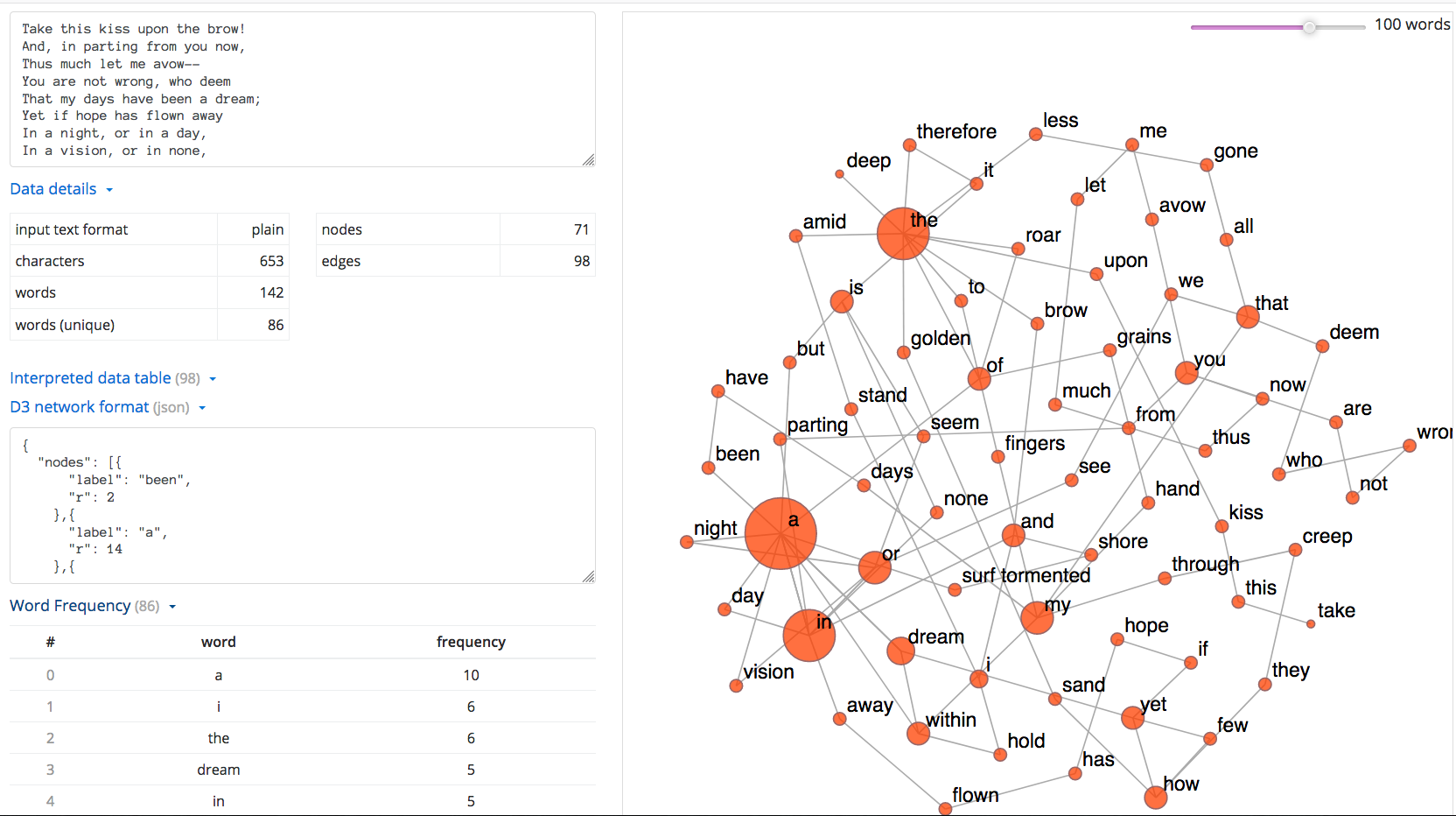2016 - Present
Instructions
(Updated October 2018)
Visit Project
Basic visualization instructions:
- To get a sense of how the tool works, choose a sample from the drop down menu at the top of the page.
- For text mining you will notice a list of well-known works, including a poem by Edgar Allan Poe. You will also notice a list of data for individual and collective activities. These visualizations and relation of the two options will be enhanced. The main point achieved in this version is that multiple individual activities can be shown on the same interface.
- On the panel at the top of the left column, you can copy and paste a text of your choice, and it will be visualized on the right panel.
- To analyze your own text, choose "clear" from the drop-down menu. The first panel offers the text as it was copy/pasted.
- The second panel, "data details," shows a table with information about the number of unique words, in relation to the total number of words. It also shows the total number of characters as well as nodes and edges.
- The third panel, "Interpreted Data Table," presents the words connected based on syntax: that is the relation of a word to the words before and after
- The fourth panel, "Data Network Format," presents the "label" which is the word itself, and the size (radius) of each node, which is defined by the number of times the word recurs. You can also view these features by mousing over the actual node on the visualization on the right panel.
- The "Word Frequency " presents the number of times the words recur from the highest to lowest number.
Project released during the month of October 2018
Eduardo Navas
http://navasse.net
Concept: Eduardo Navas
Supplementary concept for multi-purpose:
Graeme Sullivan
Preliminary code and design:
Eduardo Navas
Programming and beta user interface design:
Owen Mundy
This project was made possible with funding from The Art and Design Research Incubator (ADRI), and The Center for Humanities and Information (CHI) with support from The School of Visual Arts (SoVA) in the College of Arts and Architecture at Penn State.
|
